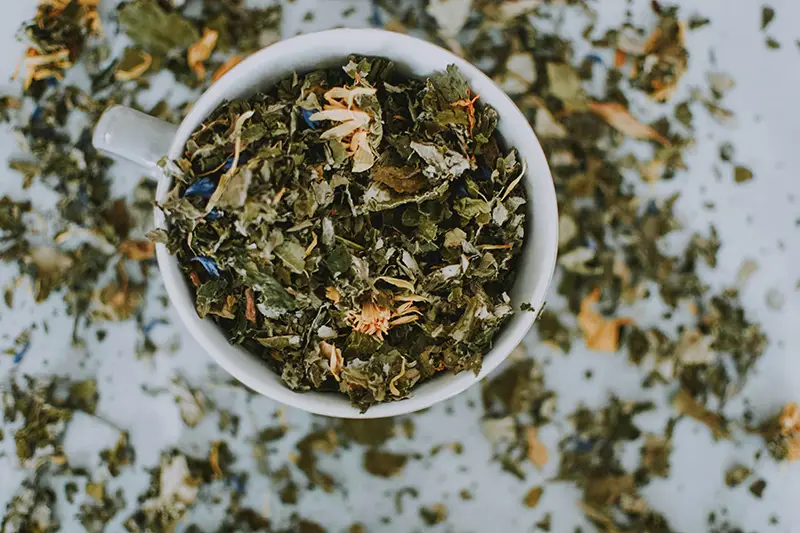How Natural Remedies Can Soothe Your Periods
Introduction
Menstrual periods can be a significant source of discomfort for many women, causing pain that varies in intensity from one person to another. In response to conventional medicinal solutions, an increasing number of women are turning to natural remedies to find relief and comfort during this phase of the menstrual cycle. Phytotherapy and aromatherapy, with their treasures of medicinal plants and essential oils, offer promising alternatives for managing these pains. “How Natural Remedies Can Soothe Your Menstruation” aims to explore these natural solutions in depth, focusing on their usage and benefits.
Medicinal Plants that Relieve Painful Menstruation
Menstrual Cycle and Phytotherapy
Phytotherapy, or the therapeutic use of plants, is a millennia-old practice that has evolved over time, enriched by technological and scientific advancements. In the context of menstrual pain, it offers a range of solutions tailored to individual needs and preferences.
Which Method to Adopt in Phytotherapy?
The methods of administering plants are diverse and vary depending on the desired effect and ease of use. Ampoules, for example, concentrate the active principles of plants and guarantee rapid assimilation, presenting an ideal solution for effective and prompt relief from pain. Capsules offer a discreet and convenient alternative, suitable for regular consumption without taste constraints. Finally, liquid preparations, such as mother tinctures or fluid extracts, allow for personalized dosing and easy integration into daily food intake, by diluting in a drink, for example.
Herbalism: Herbal Teas and Tea Services
Herbalism plays a predominant role in the natural management of menstrual symptoms. Herbal teas, ancestral preparations of dried plants infused in hot water, are particularly appreciated for their effectiveness in relieving cramps and soothing the body.
Herbal Teas to Soothe Cramps:
Among the recommended plants, some stand out for their antispasmodic and anti-inflammatory properties. Chamomile, with its calming effects, helps relax muscles and reduce inflammation. Ginger, known for its analgesic properties, offers natural and effective pain relief. Peppermint acts as a natural muscle relaxant, while yarrow is valued for its beneficial effects on menstrual cycle regulation. These teas can be consumed freely, offering welcome comfort and a healthy alternative to chemical medications.
Pelvic Pain and Aromatherapy
Aromatherapy, the science of using essential oils for well-being, offers an olfactory and topical approach to treating menstrual pain. Through diffusers or local applications, essential oils act on both the body and mind, contributing to a feeling of relaxation and a reduction in pain.
Recommended Essential Oils:
Lavender essential oil is undoubtedly one of the most popular for its soothing and relaxing action. Used in diffusion or local application (always diluted in a vegetable oil), it helps reduce the perception of pain. Clary sage essential oil, with its balancing properties on female hormones, proves to be a valuable ally in managing premenstrual and menstrual symptoms. Camphor rosemary essential oil, recommended for its antispasmodic effects, can be massaged on the belly to effectively relieve cramps. These oils, used with discernment and caution, offer a natural and gentle alternative to accompany women during this often uncomfortable period.
Conclusion
Exploring medicinal plants and essential oils in managing menstrual pain opens the door to a more holistic and body-respectful approach. By adopting these natural methods, it is possible to experience the menstrual cycle in a more serene and harmonious way, while minimizing the side effects associated with the use of conventional medications. However, it is essential to remember that the advice of a health professional is recommended before making any significant changes in your care routine, especially in the presence of specific medical conditions.
FAQ
What are the most effective medicinal plants for relieving menstrual cramps?
Among the most recommended medicinal plants to ease menstrual pain are chamomile, known for its calming and anti-inflammatory properties, which helps relax muscles and reduce inflammation. Ginger, with its analgesic properties, offers natural pain relief. Peppermint acts as a muscle relaxant, and yarrow is appreciated for its beneficial effect on regulating the menstrual cycle.
How to use essential oils to reduce pelvic pain?
Essential oils can be used in several ways to relieve menstrual pain. In diffusion, they create a relaxing atmosphere that can help reduce the perception of pain. Applied locally, always diluted in a carrier oil to avoid skin irritation, they can be gently massaged onto the lower abdomen for direct relief. Lavender, clary sage, and rosemary essential oils are particularly recommended for their soothing and antispasmodic properties.
Is using herbal teas to relieve painful periods compatible with all medical treatments?
Although herbal teas are generally considered safe, some plants can interact with medications. Therefore, it is important to consult a healthcare professional before starting to use medicinal teas, especially if you are already undergoing medical treatment. This helps to avoid potential interactions and ensures a safe approach to managing menstrual pain.
What precautions should be taken when using aromatherapy and herbal medicine for menstrual pain?
It is crucial to use essential oils and medicinal plants with discretion and caution. For aromatherapy, always dilute essential oils in a carrier oil before skin application to avoid skin reactions. For herbal medicine, it is recommended to respect the suggested dosages and not exceed the recommended amounts. Additionally, consulting a healthcare professional is essential before integrating these natural methods into your routine, especially in the presence of specific medical conditions or if you are pregnant or breastfeeding.







